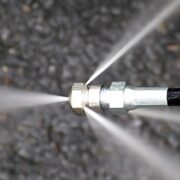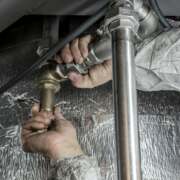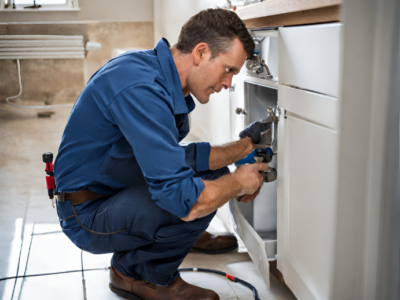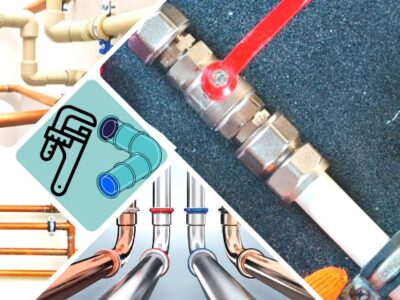Exploring the Lifespan of Faucets
When it comes to our daily lives, we often take things for granted – like the tap in our kitchen or bathroom. Have you ever wondered about the lifespan of a fixture? How long can you expect it to function optimally before needing a replacement?
Let’s find out their longevity, factors influencing their lifespan, maintenance tips, and when it might be time to bid farewell to that trusty tap.
The Basics: What is the Lifespan of a Tap?
Taps are fundamental fixtures within our households, referred to as faucets in certain regions. Functioning as a daily companion, they offer us the invaluable gift of water through a straightforward turn. Yet, how many years can we confidently depend on them before indications of usage and deterioration become apparent?
The typical lifespan of a tap ranges between 15 and 20 years, granting us a substantial period of reliable service. As these essential components play their part in our routines, let’s explore the factors influencing their longevity and how best to care for them.
Factors Influencing Tap Lifespan
Several factors play a role in determining the lifespan of a tap:
1. Quality of Materials
Like any other product, the quality of materials used in tap manufacturing significantly impacts how long it will last. High-quality materials can withstand the test of time and resist corrosion and damage.
2. Water Hardness
The mineral content of your water, known as water hardness, can affect the longevity of your tap. Hard water, with high mineral concentrations, can lead to mineral buildup and scaling, potentially reducing the tap’s lifespan.
3. Frequency of Use
The more frequently a tap is used, the more wear and tear it undergoes. Fixtures in busy households or commercial spaces might have a shorter lifespan than those in less active environments.
4. Maintenance and Care
Proper maintenance and care can extend the life of your tap. Regular cleaning, promptly addressing leaks, and avoiding excessive force during operation contribute to a longer lifespan.
Which Taps Last the Longest?
When considering the durability of taps, it’s natural to wonder which types tend to stand the test of time most effectively.
Ceramic Disc Taps
Ceramic disc taps have gained a reputation for their remarkable endurance. These taps employ advanced ceramic discs that slide against each other to regulate water flow. Due to their design minimises friction and wear, so ceramic disc taps tend to outlast different variants. With proper maintenance, they can provide reliable service well beyond the average tap lifespan.
Brass and Stainless Steel Construction
Taps crafted from high-quality materials like brass and stainless steel often boast impressive longevity. These materials are corrosion-resistant and can withstand the challenges of varying water conditions. Their sturdy construction contributes significantly to their ability to endure constant usage over an extended period.
Sensor-Activated Taps
Sensor-activated taps, commonly found in public restrooms and commercial spaces, also tend to have a prolonged lifespan. The touchless operation reduces wear caused by manual handling and minimises the risk of damage. While these taps may have more complex mechanisms, their reduced physical interaction can improve their long-lasting performance.
Water Softening Taps
Taps equipped with water-softening technology can significantly extend their lifespan in areas with hard water. These taps incorporate mechanisms that mitigate the effects of mineral buildup, a common challenge in regions with high water hardness. Water-softening fixtures can continue functioning optimally for many years by addressing this issue.
Signs It’s Time for a New Tap
Knowing when to replace a tap is essential to prevent water wastage, potential damage, and inconvenience. Look out for these signs:
Persistent Leaks
If your tap is constantly dripping even after repairs, it might be time for a replacement. A leaking tap can waste significant water and contribute to higher water bills.
Corrosion and Rust
Visible signs of corrosion or rust on the tap’s surface indicate deterioration. Not only is this unsightly, but it can also impact water quality.
Reduced Water Flow
A significant drop in water pressure or irregular flow could signify internal issues with the tap that might be beyond repair.
Old Age
Taps, like any other fixtures, have a natural lifespan. If your faucet has served you well for many years, it might be time to retire.
Extending the Lifespan of Your Tap
While taps do have a finite lifespan, there are steps you can take to prolong their usability:
1. Clean Regularly
Remove mineral deposits and grime by cleaning your tap regularly with a mild cleaner and a soft cloth.
2. Address Leaks Promptly
Don’t ignore leaks – they waste water and contribute to wear and tear. Fixing leaks promptly can prevent further damage.
3. Use with Care
Turn the tap handle gently to avoid putting unnecessary stress on the mechanism.
4. Consider Water Softeners
Investing in a water softener can reduce mineral buildup and extend your tap’s lifespan if you have hard water.
Tap into Longevity for Years of Reliable Flow!
Your tap, a simple yet indispensable part of your daily routine, has a lifespan influenced by various factors. According to Cyber Plumbers, understanding these factors and taking proactive steps to care for your tap can ensure it serves you faithfully for years.














Comments